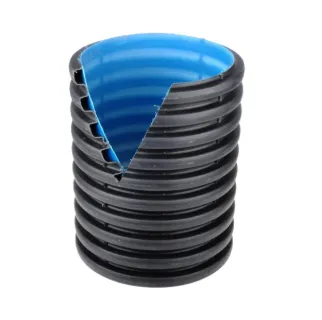Feb . 19, 2025 15:13 Back to list
The Importance of HDPE Pipe for Drinking Water in Various Fields
HDPE pipe for drinking water is widely used in various fields due to its unique physical and chemical properties and superior mechanical properties, and has become an indispensable material in modern engineering construction and daily life. Especially in industries such as water conservancy, industry, construction, and agriculture, HDPE pipes have demonstrated their importance and advantages.

HDPE pipe for drinking water has become the preferred material for water supply and drainage systems in hydraulic engineering
HDPE tubing has excellent corrosion resistance and can effectively resist the erosion of various chemicals, ensuring that water quality is not polluted. In addition, the combination of compressive strength and flexibility of HDPE tube pipes enables them to maintain good performance even in high-pressure environments, which is particularly critical for water supply pipelines. As a result, HDPE pipes not only extend their service life but also reduce maintenance costs.
In industrial applications, HDPE pipe for drinking water also plays an important role
Many industrial enterprises choose to use HDPE pipes in chemical liquid transportation, sewage treatment, and waste discharge processes. Its corrosion resistance and high strength can effectively reduce leakage risks and improve safety. In addition, the convenient installation and good adaptability of HDPE pipes enable them to meet the needs of different industrial environments, further promoting the efficient operation of industrial production.
In the field of agriculture, HDPE pipes for drinking water are widely used in irrigation and drainage systems
Its lightweight and durable characteristics help farmers reduce transportation and installation costs, making agricultural irrigation more convenient and economical. In recent years, with the continuous development of agricultural water conservancy construction, the application of HDPE pipe for irrigation in efficient agricultural irrigation technologies such as drip irrigation and sprinkler irrigation has gradually increased. This not only improves water utilization efficiency but also improves crop yields, promoting the development of sustainable agriculture.
In the construction industry, the application of HDPE pipe for drinking water has brought innovative solutions to building construction
Its excellent waterproof performance has led to the active application of HDPE drip pipes in underground drainage systems and waterproof protective layers, ensuring the safety and durability of buildings. Furthermore, HDPE pipes are lightweight, easy to cut and connect, which can effectively shorten the construction period and improve engineering efficiency.
In summary, high-density polyethylene pipes have become a key material in many industries due to their unique properties and diverse applications. The use of HDPE pipes continues to drive progress in various industries, whether in water conservancy engineering, industrial construction, agricultural development, or construction. In the face of the future, we have reason to believe that high-density polyethylene pipes will play a greater role in more fields, promoting sustainable development and technological progress in society.
-
Unveiling the Magic of PVC Irrigation Pipe
NewsJun.11,2025
-
Unlock Pipe Perfection with PPR Plumbing
NewsJun.11,2025
-
Unleashing the Hidden Potential of HDPE Tubing
NewsJun.11,2025
-
The New Frontier of PPR Plumbing Fittings Innovation
NewsJun.11,2025
-
Revolutionizing with PVC Tubing's Hidden Powers
NewsJun.11,2025
-
Advantages of HDPE Pipe in Potable Water Systems
NewsJun.11,2025

